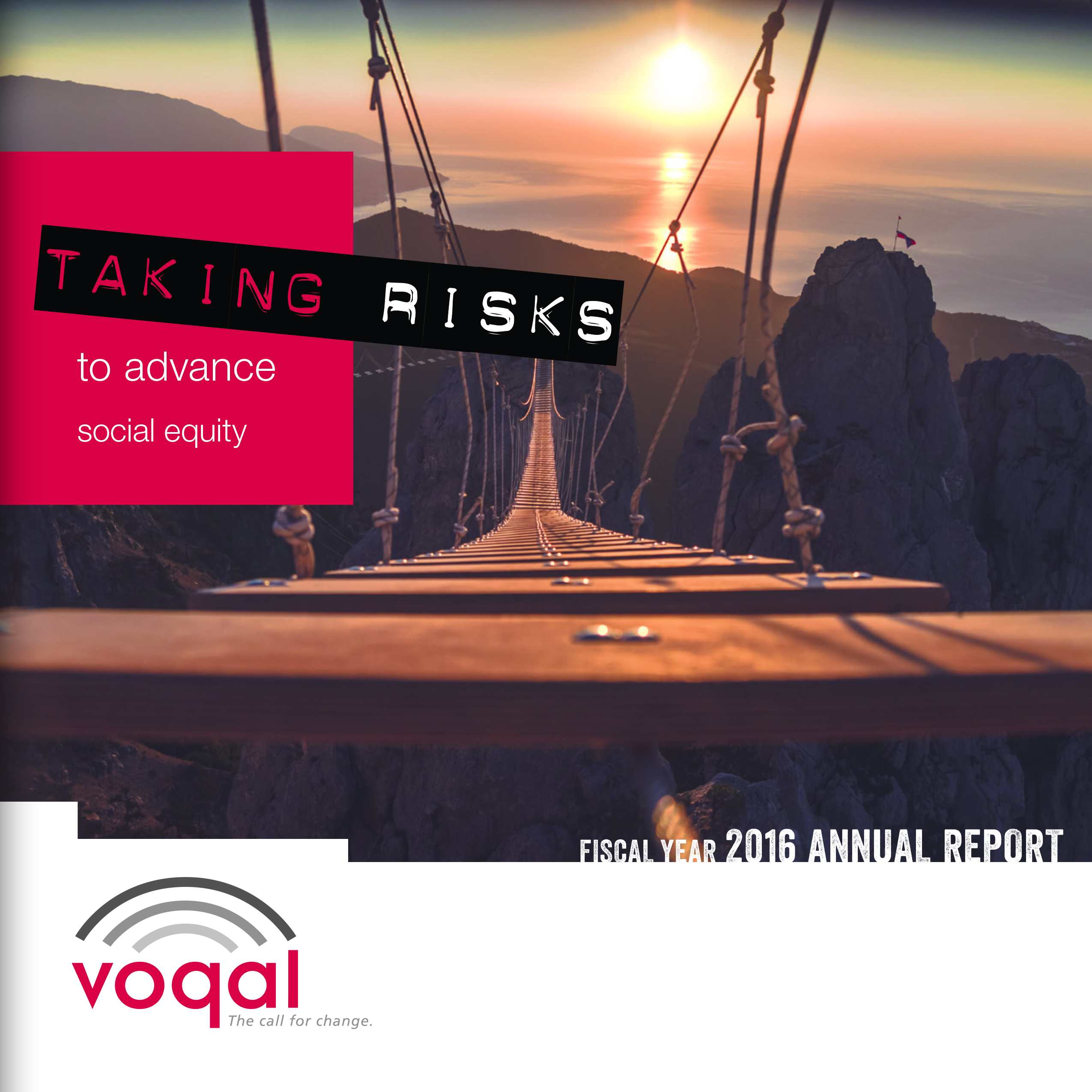January 24, 2017
Voqal recently released its first-ever annual report and is featuring some of the stories from the report on our blog. To read more download Voqal’s Fiscal Year 2016 Annual Report: Taking Risks.
The Voqal Fellowship takes risks on unproven entrepreneurs, change-makers and thought leaders who have a “big idea” to remedy a social inequity. Unlike many fellowships, however, part of the design of the Voqal Fellowship revolves around educating early-stage entrepreneurs around the formation, development and implementation of their idea.
People like Nikki Zeichner, a former New York City criminal defense attorney, whose upbringing, combined with her experience representing prisoners denied parole, sparked an interest in documenting, sharing and exploring available parole data to improve the parole hearing process. “When I was growing up, my mother worked as a forensic social worker,” said Zeichner. “Through her, I learned about the day to day aspects of our criminal justice system: the bureaucracy, the tragedy, the link between poverty and incarceration, the way people get lost in the system.”
“In New York over 10,000 parole-eligible prisoners are denied release every year and the process of how these determinations are made is unclear,” said Zeichner.
Recognizing that the first step towards fixing a broken system is understanding it, Zeichner proposed the building of a comprehensive dataset of New York state parole hearing information to get better clarity about how the parole board makes its decisions by examining diverse sources of data.
Despite numerous obstacles, including the inability to access all the data she desired, Zeichner forged ahead in her quest to help people understand the distinction between past and present behavior and to create a more transparent and just parole system in New York state. Zeichner realized she could make a more lasting impact in the short time she had as a Voqal Fellow by developing strong data scraping code and producing a digital space in which people can access open data and work collaboratively.
In the end, Zeichner paved the path for more exploration of parole hearing data in criminal justice research and achieved her goal of bringing more attention to an existing social justice problem. Since being a Voqal Fellow, Zeichner has been contacted by academics and journalists from the U.S. and abroad who have relied on either her or her project to produce new scholarship around how parole boards in New York, and the U.S. more broadly, decide whether an incarcerated individual is fit to return home.
Fellows like Zeichner exemplify the risk-taking nature of the Voqal Fellowship program. Supporting early-stage projects that are still in the sometimes messy, but always-important stages of trial and error is a key component of the program. By taking risks on early social change agents like Zeichner, Voqal is able to get one step closer to fulfilling its promise of advancing social equity through the creation of a more educated and empowered society.
Learn more about the Voqal Fellowship here.
